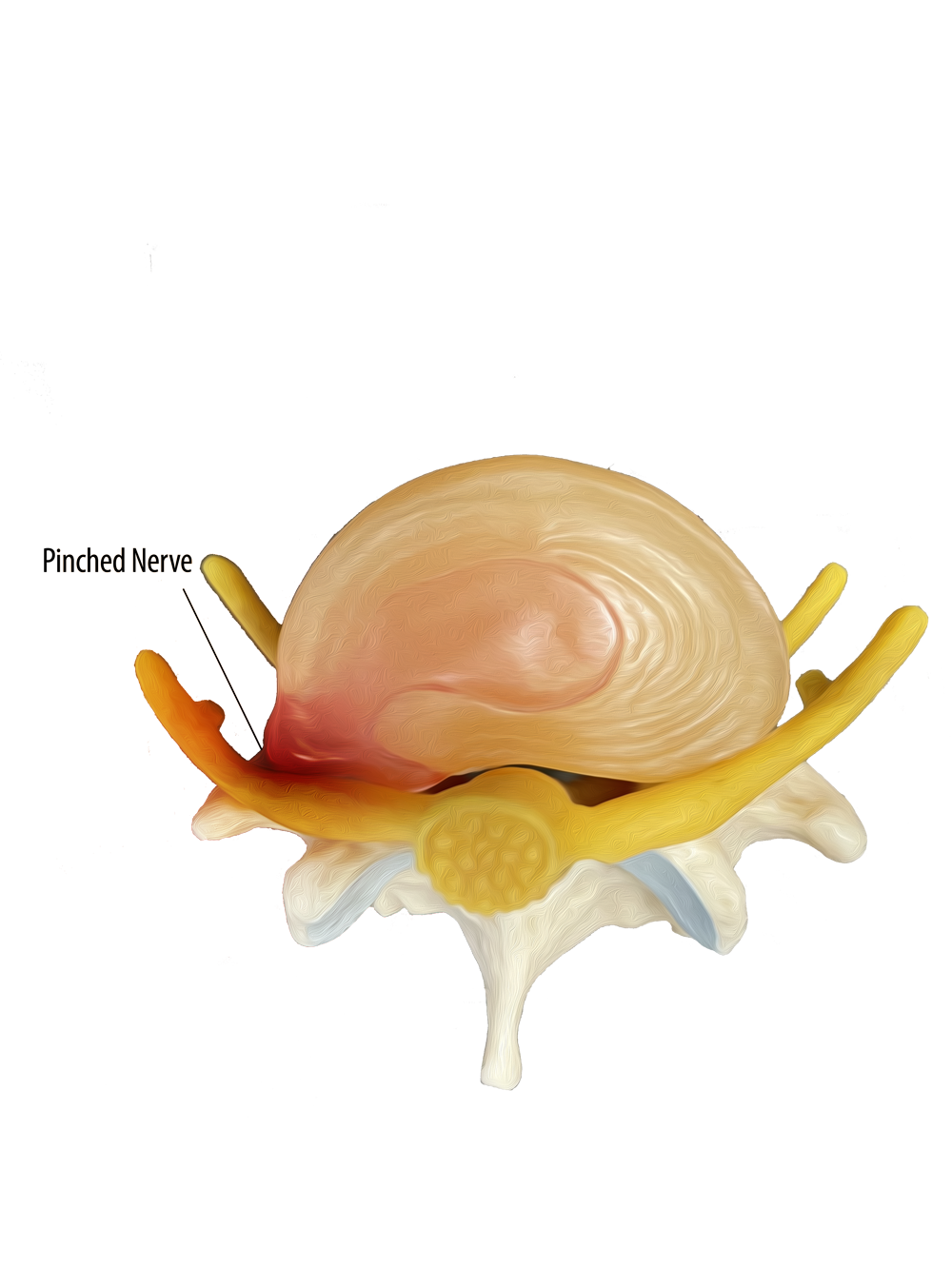Pinched Nerve Symptoms
Most people have experienced the symptoms of a pinched nerve when an extremity — for example, a hand, foot, or leg — “falls asleep”. To alleviate these symptoms of pinched nerves, a change in body position is usually all that is required. In the case of a pinched nerve in the back, however, further measures may be required.
A pinched nerve in the back may be the result of further back problems such as a herniated disc in your lower spine causing sciatica to radiate pain down the back of your leg. Pinched nerve symptoms may vary, depending on the location of the nerve or nerves involved.
Common Pinched Nerve Symptoms
- numbness or decreased sensation to the area
- sharp, aching or burning pain
- tingling “pins and needles” sensations
- muscle weakness
- frequent feeling of foot or hand has fallen asleep

Symptoms of Pinched Nerves in the Lumbar Spine
Lumbar disc herniations most often occur between lumbar segments 4 and 5, and lumbar segment 5 and sacral segment 1. Herniations at these levels compress the L5 nerve and the S1 nerve. Pinching of the L5 nerve can cause numbness, pain, burning and tingling sensations to radiate out from the affected area down the inner thigh and leg to the big toe. Pinching of the S1 nerve can cause radiating pain down the outer leg to the ankle and the sole and side of the foot.
Symptoms of Pinched Nerves in the Cervical Spine
Cervical disc herniations occur less frequently than lumbar disc herniations because less force is exerted on the cervical spine. When nerve roots in the cervical spine are compressed or “pinched”, the result can be radiating pain to the arms. If the sensory nerves between the first and second or second and third cervical levels are pinched, severe, chronic headaches can also result.
Symptoms of Pinched Nerves in the Thoracic Spine
Although less common than pinched nerves causes from lumbar or cervical herniations, a thoracic herniated disc may lead to myelopathy (spinal cord dysfunction), progressive neurological deficits, or intolerable pain. Typically, these symptoms occur following an acute traumatic disc herniation with myelopathy. The surgery to address these symptoms, employing a decompression, is designed to take the pressure off the spinal cord or nerve root. In some cases, pinched nerve symptoms may include a combination of these sensations, depending on the extent of the damage and the compression of the nerve.
The Bonati Spine Institute encourages patients with pinched nerves to contact us to request a no-obligation MRI review or discuss your conditions with our medical professionals. Find out why The Bonati Spine Procedures are considered to be among the world’s best solutions when it comes to advanced spine surgery. Your pain from pinched nerves can become a thing of the past.
